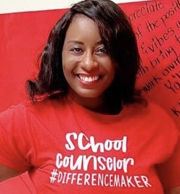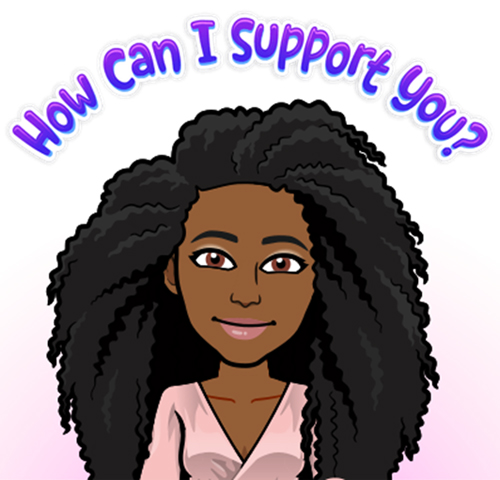
President's Letter: School Counselor Inclusivity and Support for Students with Disabilities
By Zulena Staton | March 2023
 It’s important that school counselors provide a comprehensive and inclusive counseling program for all students. School counselors are especially needed to support students with disabilities, often for additional assistance for individual counseling, referrals and collaboration. As 504, ML (multilingual learner), PST (problem-solving team) and IEP team members, school counselors provide valuable insight and information. They assist with developing interventions and accommodations to help students achieve academic success. Input should be obtained from a variety of sources, including parents, teachers, student information, report cards, home language surveys, aptitude and achievement testing and discipline records. Another responsibility for school counselors is coordinating with the school testing coordinator on allowable accommodations and prerequisites for making such accommodations to any of the state-mandated tests. See the ASCA position statement The School Counselor and Students with Disabilities:
It’s important that school counselors provide a comprehensive and inclusive counseling program for all students. School counselors are especially needed to support students with disabilities, often for additional assistance for individual counseling, referrals and collaboration. As 504, ML (multilingual learner), PST (problem-solving team) and IEP team members, school counselors provide valuable insight and information. They assist with developing interventions and accommodations to help students achieve academic success. Input should be obtained from a variety of sources, including parents, teachers, student information, report cards, home language surveys, aptitude and achievement testing and discipline records. Another responsibility for school counselors is coordinating with the school testing coordinator on allowable accommodations and prerequisites for making such accommodations to any of the state-mandated tests. See the ASCA position statement The School Counselor and Students with Disabilities:School counselors encourage and support all students’ academic, career and social/emotional development through school counseling programs. School counselors are committed to helping all students realize their potential and meet or exceed academic standards with consideration for both the strengths and challenges resulting from disabilities and other special needs.
The Individuals with Disabilities Education Act (IDEA) requires public schools to provide a free, appropriate public education in the least restrictive environment for all students. Under IDEA, 7.2 million public school students are identified as having a disability and receive special education services (U.S. Department of Education, 2021). IDEA defines a child with disabilities as one evaluated in accordance with §§300.304 through 300.311 and having any of the following:
- intellectual disability
- hearing impairment (including deafness)
- speech or language impairment
- visual impairment (including blindness)
- serious emotional disturbance (referred to in this part as “emotional disturbance”)
- orthopedic impairment
- autism
- traumatic brain injury
- other health impairment
- specific learning disability
- deaf-blindness
- multiple disabilities
School counselors strive to help all students achieve their full potential, including students with disabilities, within the scope of the school counseling program. School counselors recognize their strengths and limitations in working with students with disabilities, are aware of current research and seek to implement best practices in working with students presenting with any disability category and who, by reason thereof, need special education and related services.
School counselors’ support for students with disabilities makes a difference in their academic, career/college, and personal success! Continue to be an MVP and difference maker for all students!
Contact Zulena Staton, NCSCA president, at StatonZ@pitt.k12.nc.us.
